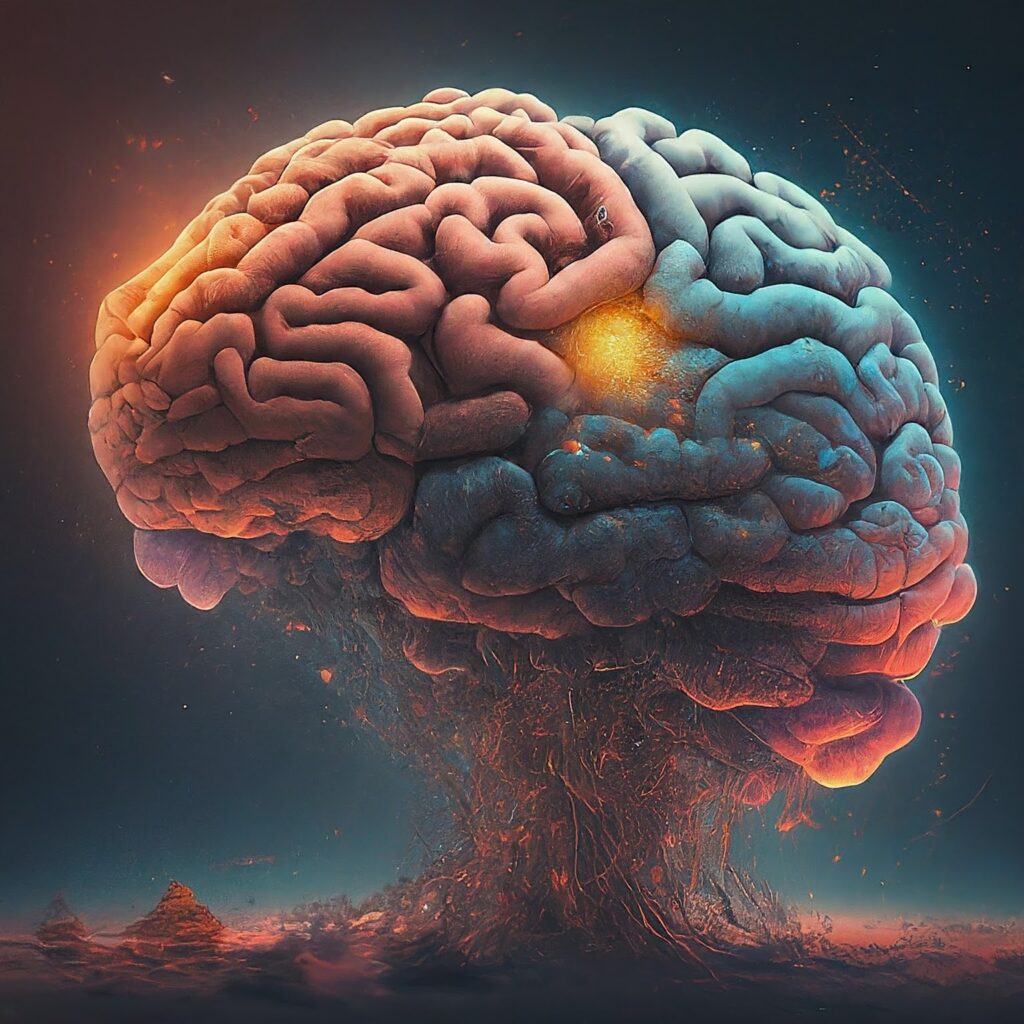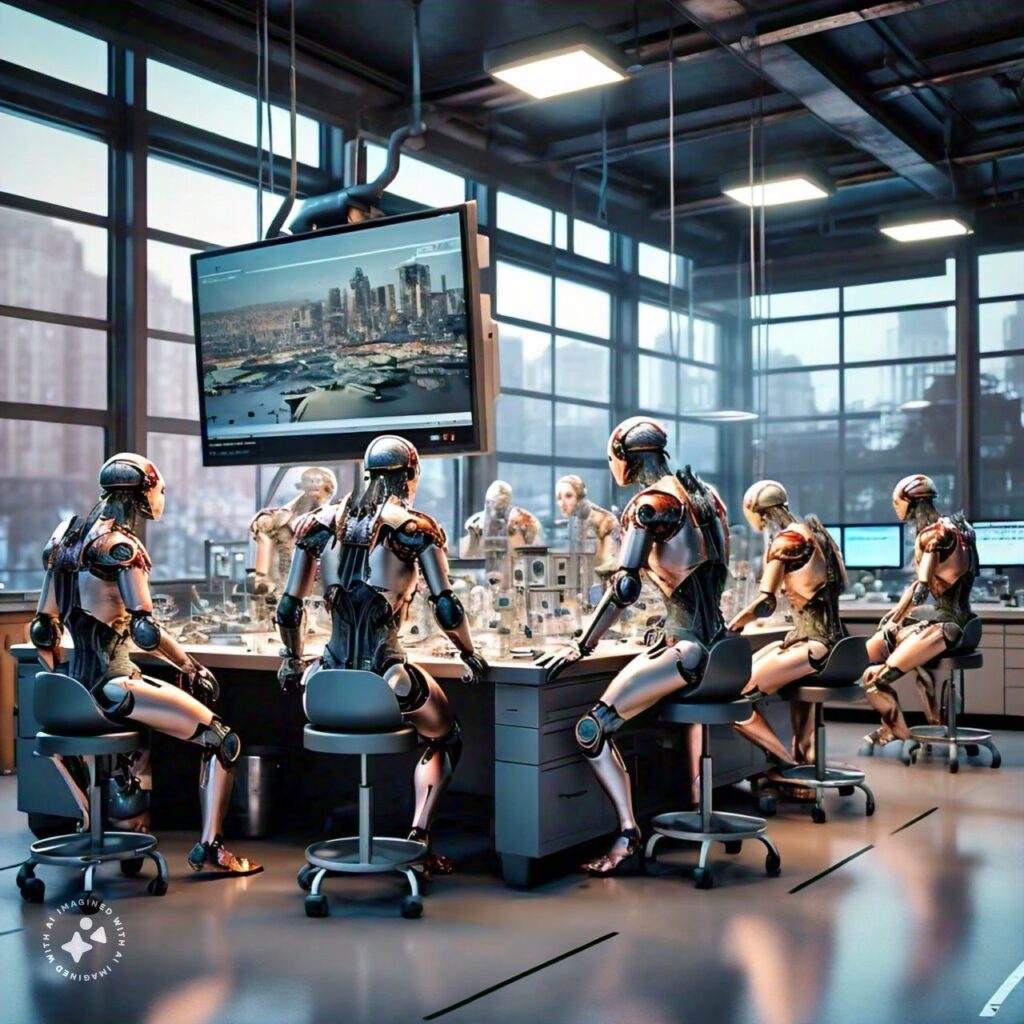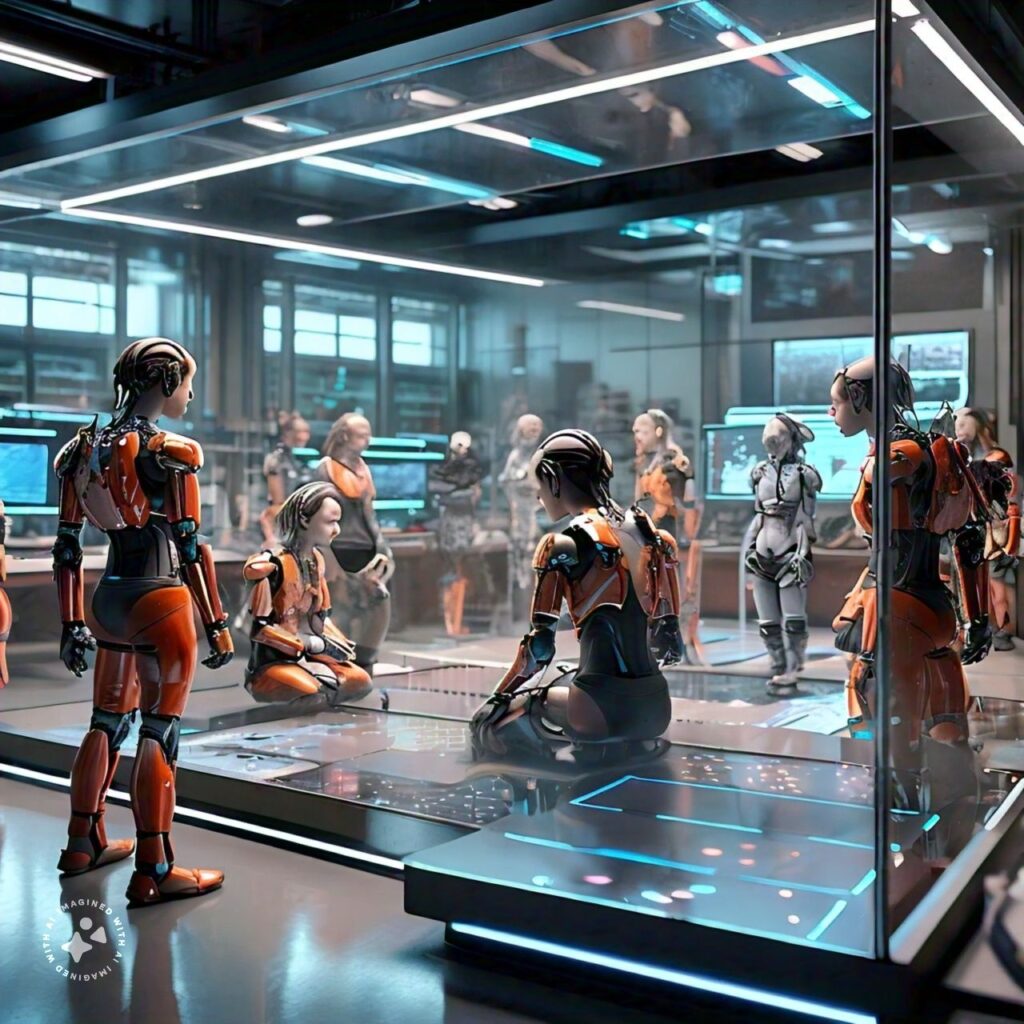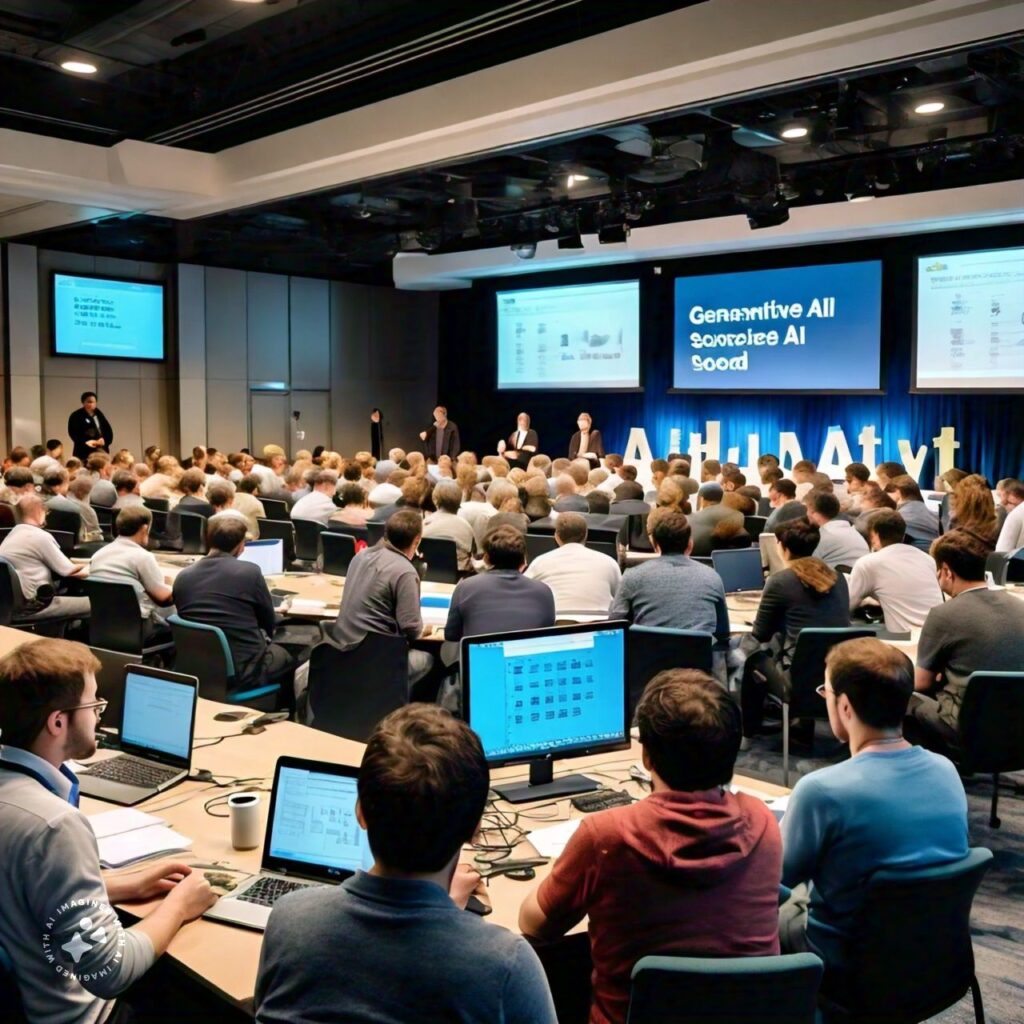Generative AI, a powerful branch of artificial intelligence, is rapidly transforming the way we approach problem-solving across various industries. By learning from vast amounts of data, generative AI can create entirely new content, from realistic images and compelling music to informative text and efficient software code. This ability to generate novel solutions is leading to positive impacts on a global scale.

But how exactly is generative AI being used for good? Let’s delve into some of the exciting ways this technology is tackling real-world challenges:
Table of Contents
ToggleRevolutionizing Industries
Healthcare
Generative AI is accelerating drug discovery by analyzing complex molecular data to identify potential drug candidates. This can significantly reduce the time and cost associated with traditional drug development processes, leading to faster breakthroughs in treatments for diseases. Additionally, AI-powered chatbots can provide 24/7 support to patients, answer basic questions, and schedule appointments, improving accessibility to healthcare services.
Education
Generative AI can personalize the learning experience by tailoring content and exercises to individual student needs. Imagine AI systems that create customized lesson plans, identify knowledge gaps, and provide interactive learning materials in real-time. This personalized approach has the potential to significantly improve educational outcomes for students of all ages.

Climate Change
Generative AI can be a powerful tool in the fight against climate change. By analyzing complex climate models, AI can help predict weather patterns, optimize renewable energy production, and identify areas most susceptible to environmental damage. Additionally, AI can be used to develop more sustainable materials and design energy-efficient buildings.
Manufacturing
Generative AI is streamlining manufacturing processes by optimizing production lines, predicting potential equipment failures, and even designing new products with superior functionality. This can lead to increased efficiency, reduced waste, and faster product development cycles.
Content Creation
From generating realistic product images for e-commerce websites to writing captivating marketing copy, generative AI is changing the content creation landscape. AI-powered tools can automate repetitive tasks, allowing creators to focus on more strategic aspects of their work.
Generative AI for Good in Action: AI Next Gen Apps
A prime example of generative AI’s practical application is AI Next Gen Apps, a website offering a suite of web applications powered by this innovative technology. Let’s explore how some of their applications leverage generative AI:

PDF Chatbot
Imagine a world where you can interact with a PDF document through a chatbot interface. AI Next Gen Apps’ PDF Chatbot utilizes generative AI to summarize and answer questions directly from the document’s content, saving you valuable time spent searching for specific information.
YouTube Videos Chatbot
This AI-powered YouTube Videos Chatbot can analyze YouTube videos and generate summaries, answer questions about the content of the videos.
Webpage Chatbot
Enhance user experience on websites with a Webpage Chatbot built using generative AI. This chatbot can summarize the content of the webpage and answer queries about the webpage content.
MCQs Generator
Educators can leverage the power of generative AI to create customized multiple-choice questions (MCQs) for assessments by using MCQs Generator. This not only saves time but also ensures the questions effectively test student knowledge.
PowerPoint Presentation Generator
Struggling to create an impactful presentation? AI Next Gen Apps’ PowerPoint Presentation Generator utilizes generative AI to create slides based on your input, saving you precious time and effort.
Text to Speech
This AI-powered Text to Speech tool can convert text into natural-sounding speech, perfect for creating audiobooks, educational materials, or voiceovers for videos.
These are just a few examples of how AI Next Gen Apps utilizes generative AI to create user-friendly web applications. As generative AI technology continues to evolve, we can expect to see an even wider range of innovative applications emerge across various industries.
The Future of Generative AI
The potential of generative AI to solve real-world problems is vast and ever-expanding. As AI models become more sophisticated and data becomes more readily available, we can expect to see even more groundbreaking applications in the years to come. However, ethical considerations surrounding AI bias and data privacy must also be addressed. Responsible development and deployment of generative AI solutions will be crucial to ensure these technologies truly benefit all of humanity.

Here are some key takeaways:
- Generative AI is revolutionizing various industries by creating new solutions to complex problems.
- Applications range from personalized education and drug discovery to sustainable manufacturing and content creation.
- AI Next Gen Apps showcases the practical application of generative AI through web applications like PDF Chatbots and MCQ Generators.
- The future holds immense promise for generative AI, but ethical considerations must be addressed.
By harnessing the power of generative AI responsibly, we can build a better future for everyone.
Conclusion: A New Era of Possibilities
Generative AI is ushering in a new era of possibilities. From tackling global challenges like climate change to personalizing education and streamlining business processes, this technology holds the potential to create a positive impact on a massive scale. As generative AI continues to evolve, collaboration between developers, researchers, and policymakers will be crucial to ensure its responsible development and deployment. By fostering ethical practices and prioritizing human well-being, we can unlock the true potential of generative AI and build a future where this technology empowers all of us to solve the world’s most pressing problems.
FAQs (Frequently Asked Questions)
While generative AI is powerful, it’s still under development. Some limitations include potential bias based on training data, the need for significant computing power, and the challenge of ensuring factual accuracy in generated content.
Focus on using high-quality, unbiased data sets to train your AI models. Be transparent about the limitations of your AI and avoid making claims of sentience or consciousness. Prioritize user privacy and security when handling data.
There are many resources available online, including research papers, articles, and tutorials. Universities and tech companies often offer courses and workshops on generative AI. AI Next Gen Apps is a good example of a company showcasing practical applications of generative AI.
While AI automation may impact certain roles, it’s more likely to create new opportunities. Generative AI can handle repetitive tasks, freeing humans to focus on more creative and strategic work.
The future of generative AI is incredibly exciting. As AI models become more sophisticated and data becomes more accessible, we can expect even more groundbreaking applications across various industries. Responsible development and deployment will be crucial to ensure this technology benefits society as a whole.
